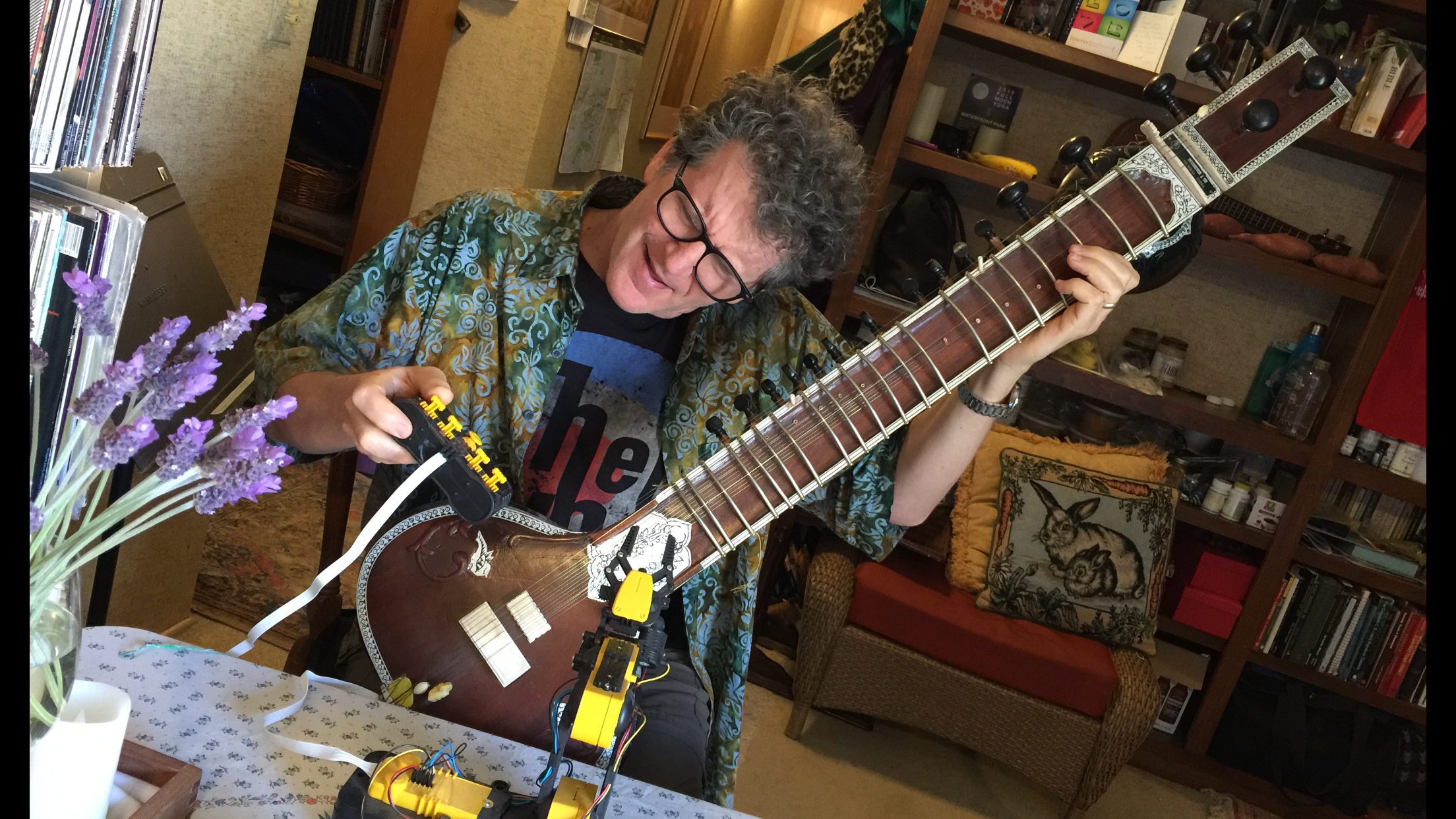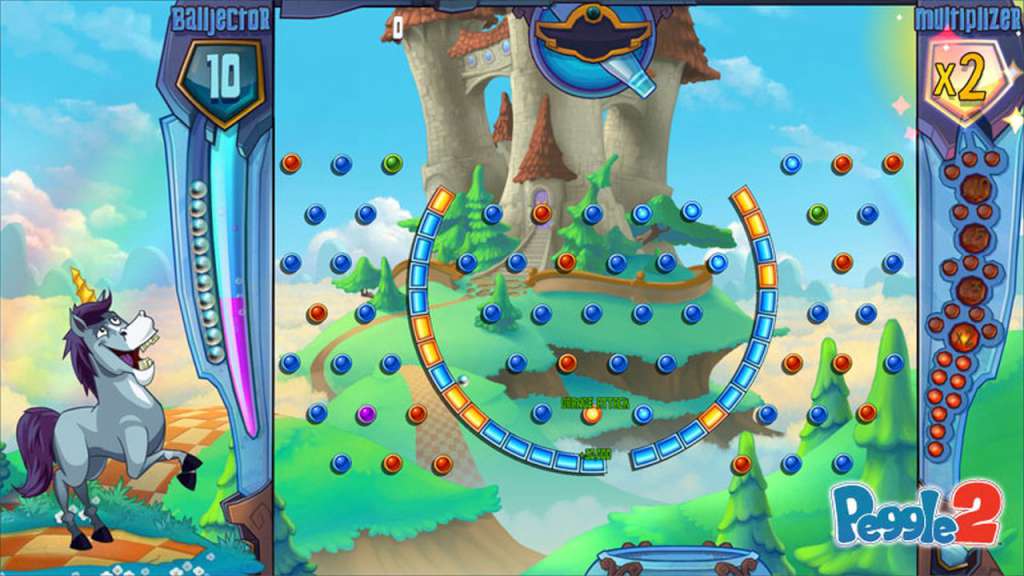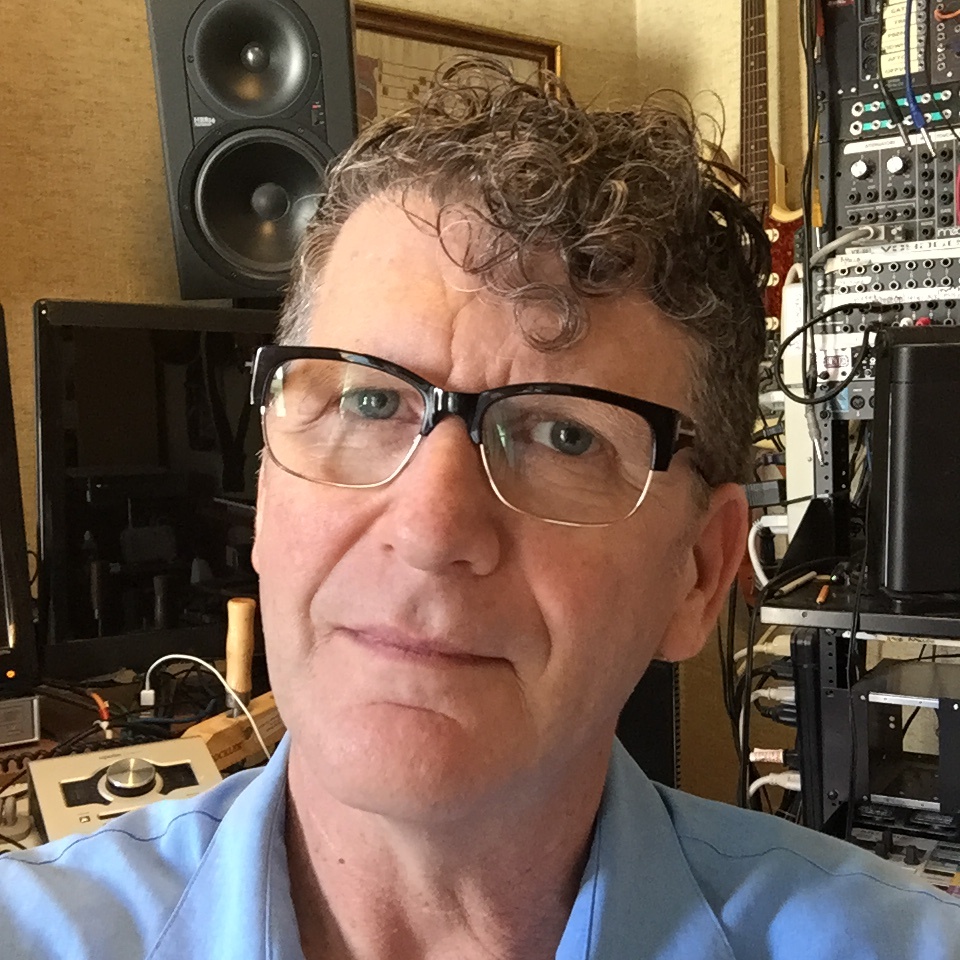It's a mouthful: “Technology aside.” I could see that short sentence as a Two-Word Guide through a wilderness in which a lot of us get lost. Keep this short Guide handy--consult it often. Minimize unwanted wandering. Avoid the bears. Find the treasure.
Apply it to all your choices, especially your technology, tools and processes. Apply it to Wwise. Because any effective tool--a toothpick, dynamite, a well-polished newt--can be used for art or commerce in a number of ways; Wwise is among the most powerful things available to you. Have fun, change universes, build worlds with it, but don't let the monkey fly it, don't clean it while it's loaded, don't try to fit the whole thing in your mouth at once, that kind of thing.
That’s all I want to say. If you already get what I mean by the monkey thing, or by the title of this blog entry, or by being psychic, you can skip the rest of the article. There. You owe me, pay up. Your time's worth something, ya know. Smiley face.

Since the Dawn of Time, we in the sound making biz—especially where it’s interactive—have been welcoming new technologies that "enable us to do things we’ve never dreamed possible.” We can bore each other with stories about the monophonic "on-off" PC speaker, AdLib cards, MIDI, General MIDI, Downloadable Samples, DirectMusic, 8-bit 11K, CD-ROM, loops, controllers, synths, libraries, platforms, I’m going to stop now. I wrote much more than this, I deleted it. Happier now. Heart going back to normal rate. Typing again…
I’ll restate that paragraph another way: Throughout the last 35 or so years of game audio, we were always up against technical challenges. Over and over we got new tools and tech to solve our issues, and and as each challenge was at least seemingly solved, new challenges arose, often caused by the new tools themselves and how we found ourselves using them--ending up lost in the availability of overwhelming new options and technical overhead. Among these tools and tech were some legitimately earthshaking breakthroughs. I owe my career to MIDI, I made a name for myself debuting and then working kinks out of General MIDI, I helped introduce digital sounds. But on the odd occasion when the two-word guide was forgotten…yikes.
The sounds got better, but the creative landscape changed in ways that could sometimes leave some of us longing for the “good old days.” Why? Rather than doing things to serve our hearts, we started doing things “because we could.” Rather than focusing our educational explorations on the set of things we needed to know to accomplish our mission, or to realize our vision, we learned what was thrust upon us as “available” or as something we “need to know to succeed in the business.” Misdirected time. Lack of focus. Eyes _off_ the prize. Let this not happen again.
And again, I say, "Technology Aside..."
Picking Tools
A new tool might be promoted to you as something like a step stool that allows you to reach places you couldn’t before. “To do things you never dreamed of." But if the goal is to get a vision from your head into a tangible medium, you kind of don’t want to do things you never dreamed of, do you? Quite the opposite.
The tool that speaks to me is less a step stool and more like a window or a doorway—it gets out of your way when you need it to. If a guitar that you play feels like it’s reminding you of something you always felt was true about music, but had forgotten—Get it. If you sit down to a new keyboard and each preset you try sounds great, and each intuitive tweak you make sounds even better, put that keyboard on your Christmas list. On the other hand, if you’re thinking “I’ve got to get the manual for this, because if I put in the time, I could make something really cool,” then you might want to consider the risk-to-reward of that, and weigh it against the risk-to-reward of walking away.

Our Job is...?
While I will readily recognize that sometimes our job is to know about techniques and technology, and sometimes to “just make the darn noses for the darn game” and sometimes to “make the client happy,” whatever that means or takes, I contend that there is a deeper need in the world for us: To make things a little better everywhere we go, rather than a little worse. To serve the player. To communicate what’s in our hearts. To remind the world that it's a beautiful place. Or at least to bring our ingenuity to the table and elevate the situation. And to do any of these, we do best when we recognize what is important and de-emphasize the trivial. Perspective. Prioritization. Focus. These are your real tools, and in a real sense, those are actually what you’re getting paid for.
Technology, even the loveliest of technology, in its beautiful attempts to open up the sky for you, can detract from your ability to focus, prioritize, and keep perspective.
Let me put it this way: Ron Jones, "orchestral composer" (that gets game audio peoples' attention) for “Family Guy” and “Star Trek: The Next Generation,” and many others, composes with a piano, a pencil, and manuscript paper. He gets the job done, he supports the product, he touches hearts, and frankly, a lot of us find ourselves admiring his product and envying his workflow. I will even go so far as to say that an occasional tear is shed by a “content provider,” picturing Mr. Jones at the Steinway, wishing to be a Real Composer someday.
Is it ringing true? Is that Content Provider you? Are you lost in the maze of Tool Overload? And if so…is there a way out? Of course there is, I’m saying out loud so we both can hear. Because we all need to hear something beautiful, and let that be our slogan. Per the title; What are you wanting to do…technology aside? Start there, focus on that. That is your way. Because if you stick to that, then to the extent that it’s possible, your efforts will be as directed, efficient and effective as Ron-at-the-piano’s.
Examples
So how, for example, might we approach a project in a way that might maximize our latent and inherent value?
Focus. Looking at the project at hand, you probably want to express some kind of artistic intent, or support the intent of the medium that you’re scoring to. If it’s linear media, you want to uphold the director’s vision and make sounds that make that thing pop off the screen. Keep that in mind—always. If the project is interactive, there is likely a game design that has a gameplay contour, with events and features that need to be communicated to the player so that they can play with their eyes closed and enjoy it. And there’s probably a pretty specific theme or setting or mood, and it’s your job to make a living sound environment that the players want to own as a part of their lives through their ears and hearts. Pick your tools according to those goals, rather than wandering around through the tools to see what’s there, guided by an Internet full of ads and how-to’s.
Example 1: Me
The way I approach this personally: I would often start by picturing a gigantic IMAX movie playing an important scene from the game. I’d do this away from my computer, usually driving or in the shower, and I know I’m not alone in this (joke intended). I’d let the emotion of the visualized scene (the game, not the shower) overtake my heart, and then I would hear in my mind the glorious soundtrack to that…and that would be the seed of the soundtrack I would set out to create. Everything from that point to delivery would be to serve the mission to bring that emotional power to the final listener.
Example 2: Guy Whitmore
Guy did Peggle II, one of the great breakthrough game scores. Why breakthrough? Because bottom line, it transparently makes the game fun to play. Oh, yeah, and it uses an orchestra that dynamically changes the score to fit the contour of the gameplay. And what really nails it for me is that Guy started with The Vision: He got a video of some early prototype gameplay, and scored it "in the shower," ie, the way he would have wanted it to sound Technology Aside(R). He then used all the giant hammers, bulldozers and fiddley bits in Wwise to make the whole thing efficient, effective, dynamic, awesome, and...FUN. Badaboom badabing, and I mean that literally.

Example 3: You
To let this sink in, try running yourself through a visual version of that process: think of the audio project as a statue. You close your eyes, you get The Precious Vision in your inner eye, then open your eyes to build it. A hundred or so years back, you would have opened your eyes and seen a bucket of clay, or a big piece of marble and a chisel, and you would have known what you were supposed to do to get that thing into the art gallery. But with all the technology, you now find yourself in a big junkyard, with a drill, a glue gun, a junkyard of pre-made statue parts, a sewing machine, a blimp, a guitar tuner and a corkscrew. And a link to Sweetwater Sound, and a bag full of little cards from GDC telling you what you need to buy and learn next in order to be legitimate.
Keep Focus. It will all work. Think to yourself, “Hold that vision, and FIND THE CLAY.” OK to go to GDC, OK to go to Sweetwater, but SEEK THE CLAY FIRST, and let the awesome junk come to you as it may.
And that is the light in which to approach which tools to learn and use. And in so doing, workflow returns to what it should be…a pipeline from your heart to your hands to the product to the listener’s ears to his/her heart.
Conclusion
So I’m saying something that may be obvious (but let’s keep saying the good stuff over and over, shall we? It’s good for the planet). Get the vision first, then pick your tools carefully. Be attracted to the ones that serve your vision, that have quick learning curves and deliver beautiful results. That allow you to find a starting point quickly, and from there make adjustments that bring you closer and closer to where your heart is responding with warmth to what is heard. Find the Clay. Hold the Vision. Technology Aside.
Then once you've built that perfect sound and collected the embarrassingly large sacks of prize money, then for your next project you can wander through the beautiful junkyards of loops, plugins, grooves and patches, find a combination that does it all in a single button-press, and wave it in my face yelling “Wrong Again Fat Man!" It’s happened before, and it all makes me smile.
Enjoy the Wwise Adventure--I look forward to hearing your stuff, and I’d love to get your thoughts on this. Am I WAAY off? Have at it. After all, if it’s Wwise, it’s Interactive, right?
![]()


댓글
Ira Cord Rubnitz
May 08, 2018 at 03:49 pm
PreCISEly! I do love all my guitars and samples and Moog, Mellotron, synths, pedals, etc...HowEVER...if a Song is great, it will most likely be great on a Martin, Strat, or piano. Follow the vision, heart, and hear it in ya head! Have a template of a few instruments, and Actually...as in Sound Design...make yer own! ie Bari Sax & Strat thru a Ratt! Imagination & Heart! Nice writin'...TechAside!
Bob Andrews
May 08, 2018 at 04:16 pm
Back in the sixties and seventies I was creating sound tracts for the industrial show biz. I would use records for source music. Those records had noises on the in the form of pops and cracks. I would record them on tape at thirty inches per second and then edit out the annoying noise. I came to find that a pop or crack is only one-quarter of an inch and because of the thirty IPS, hardly noticeable. I was happy when CD's hit the market. We didn't have very sophisticated equipment then like what is available now. I only wish there was a piece of audio equipment like wWise at the time. It would have saved me an enormous amount of time. By the way, in all those years creating sound tracks, I never used the same piece od music twice.
Michael Land
May 08, 2018 at 04:57 pm
Great article. Spot on. And your remote-controlled sitar-picker is the perfect metaphor for someplace we've all been on occasion :-)
George Sanger
May 09, 2018 at 12:14 pm
Ira, Yes. So glad that a bad-ass like you would chime in. In your example, The Song is The Thing. Funny, but in all my adventures in tech and business and community, SONGS rise to the top of the heap of Things That Are Important. Songs, of all things, carry power and value, and my conviction in that deepens all the time. That specific thing will likely will have a heavy influence on my next blog or two. So thanks for the encouragement! :D See you soon
George Sanger
May 09, 2018 at 12:33 pm
Bob, Wow...Corporate Musicals!!! I salute you, Sir. (for those who don't know, https://en.wikipedia.org/wiki/Industrial_musical#Titles_of_industrial_musicals ) What a great example of a creative opportunity with a clearly-defined goal. And what a lot of creativity and energy was poured into something that would be experienced so rarely by so few...I admire you and I think many of the people can relate if they have worked on cancelled games or projects that only run on dated machinery. I would think efficiency would be so important--and there you were splicing record clicks out of tape with a razor. Something like Wwise would have served especially well, I imagine, if you were running recorded backing tracks in the live performances, and needed the music to behave differently _once_ an event happened (vamp until she hits her mark, then cue violin), or _if_ an event happens (if the audience goes wild, cue encore). In future blogs, I hope to elaborate on the possibilities of using Wwise to allow songs to adapt and adjust how they play in situations in which they might need to, or would be more effective if they adapted. Not just, you know, interactive "because we can. " Because "what are you wanting to do, technology aside?" :)
George Sanger
May 09, 2018 at 12:46 pm
Michael, I treasure our ongoing friendship. And this very thing has been at the core of so much of our conversation, hasn't it? Thanks for exploring much of the country in which Wwise was eventually built, and for making your voice and your wisdom heard. One of my favorite stories from you pertains here. You worked so hard on your interactive audio engine (iMUSE) and then so hard on creating smooth transitions in ...was it Monkey Island?... and they ended up being so smooth that nobody noticed that the music was reacting to gameplay! So I guess that relates to "what are you wanting to do?" Because if the point was to support the atmosphere of each of the game's areas while remaining unnoticed, you could say the tech was used well. If the point was to give the player a little thrill that she's entered a new zone, then a different approach, (maybe less of the tech????) might have been more effective? But then, again, it's Monkey Island. And as Sir Paul says about critics of the White Album, "Hey, it's the @#$! White Album, OK?" Correct me if I'm wrong, and Shine on, you crazy diamond.